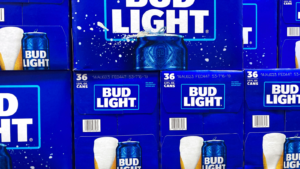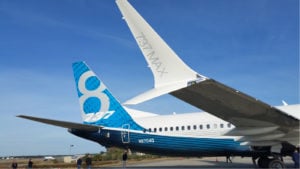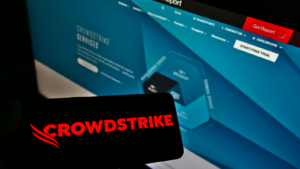3 Stocks Reeling From Ruined Reputations: Can They Recover?
When your reputation is in tatters, being able to pull your company up out of the ashes takes a Herculean effort. Certainlyit is not easy. As Warren Buffett once said, “It takes 20 years to build a reputation and five minutes to ruin it. If you think about that, you will do things differently.” Some companies apparently never thought about it.
Arthur Anderson had been a respected accounting firm with decades of service but its complicity in the Enron and Worldcom scandals damaged it beyond repair. Its conviction on obstruction of justice charges (eventually overturned) eventually caused it to cease operations.
On the other hand, Johnson & Johnson (NYSE:JNJ) showed that it can be done. The consumer health giant’s reputation was in tatters after cyanide-laced Tylenol caused the death of several people in Chicago in the 1980s. Although it was the work of a psychopath, Johnson & Johnson pulled all Tylenol bottles everywhere from the shelves. It also halted all manufacturing and marketing and offered to replace all bottles already purchased by the public with solid tablets. The incident led to changes in how medicine is packaged but also showed how a company could respond to save itself and its brand from ruination.
Several controversial stocks today are dealing with reputational fallout from their actions. Whether they can ever fully recover remains to be seen. With their stocks trading at significant discounts, let’s take a closer look to see if they are worth investing in.
Anheuser-Busch InBev (BUD)

On the surface, Anheuser-Busch InBev (NYSE:BUD) seems like it should eventually rebound but there is a deeper problem that could mean it is irrevocably damaged.
Amid a secular decline in beer sales, the brewer launched a social media campaign last year to reach a younger audience for its Bud Light brand. At the time, the beer was the biggest-selling brand in the country, a position it held for over two decades.
However, by featuring a transgender woman on the can at the height of the culture wars, it ignited a protest by conservatives to boycott Bud Light. In the first month following the controversy, Bud Light sales cratered 26% andAnheuser-Busch’s overall sales declined 1%. They are still falling today. In the four-week period ending July 6, Bud Light had fallen to third place with just a 6.5% share of the market, half of what it had been. It cost Anheuser-Busch over $1 billion in sales and some $27 billion in brand value.
This does seem like something that will fade in time and BUD says losses have stabilized. Yet with liberals also upset with Anheuser-Busch backpedaling away from the promotion, lost Bud Light sales may never return.
BUD stock has recovered from the worst of its losses but remains 9% below where it stood before the controversy erupted.
Boeing (BA)

Arguably one of the biggest stories this year has been the safety record of Boeing (NYSE:BA) airplanes. Followinga hatch door popping off mid-flight on a Boeing 737 Max 9 aircraft, a series of additional mishaps followed. A tire fell off the landing gear, an engine caught fire, an external panel fell off and there have been hydraulic system problems. They all occurred in the span of a few weeks.
Since then, whistleblowers have come forward to say Boeing and its parts supplier Spirit AeroSystems (NYSE:SPR) play fast and loose with safety. It got so bad that Boeing will acquire Spirit in a $4.7 billion deal to have greater oversight. Airlines are now looking elsewhere for planes to buy. Boeing also just agreed to pay a $244 million fine and spend at least $455 million over the next three years to boost safety and compliance programs.
Yet as I noted earlier this month, commercial aircraft is only half of Boeing’s business. It is also a major defense contractor responsible for some of the most important military aircraft, including the President’s Air Force One. Because it is one of only two major commercial aircraft manufacturers along with the U.K.’s BAE Systems(OTCMKTS:BAESY), and it is so critical to military aviation, it cannot be allowed to fail. I wrote, “Its low point now represents an opportunity to buy an undervalued defense contractor.”
Boeing stock is down 30% in 2024 and is cheap enough to buy into now.
Crowdstrike Holdings (CRWD)

The last of the controversial stocks is Crowdstrike Holdings (NASDAQ:CRWD). Its “scandal” just occurred on July 18 when the independent cybersecurity outfit accidentally uploaded a bug into a software patch. The cascading series of events that followed caused IT systems globally to crash.
Multinational corporations, major tech stocks and government agencies worldwide saw their computer operations bricked. For a company tasked with cybersecurity responsibilities, causing such mass outages is not a good look. Crowdstrike stock collapsed 25% in the aftermath. It traded north of $343 the day before the crash and now goes for $258.
Yet Wall Street remains upbeat on Crowdstrike. It believes this is just a passing issue for the controversial stock. Because it didn’t involve a hack of the company’s systems and a loss of data but was rather a human error issue, analysts believe Crowdstrike can recover.
It is likely rivals will use the problem to take some market share from Crowdstrike. Its stock may also languish for some time to see what the financial hit will be to its business. But companies have bounced back from such “fat finger” disasters before and CRWD stock should as well.
On the date of publication, Rich Duprey held a LONG position in JNJ stock. The opinions expressed in this article are those of the writer, subject to the InvestorPlace.com Publishing Guidelines.
On the date of publication, the responsible editor held a long position in CRWD.

